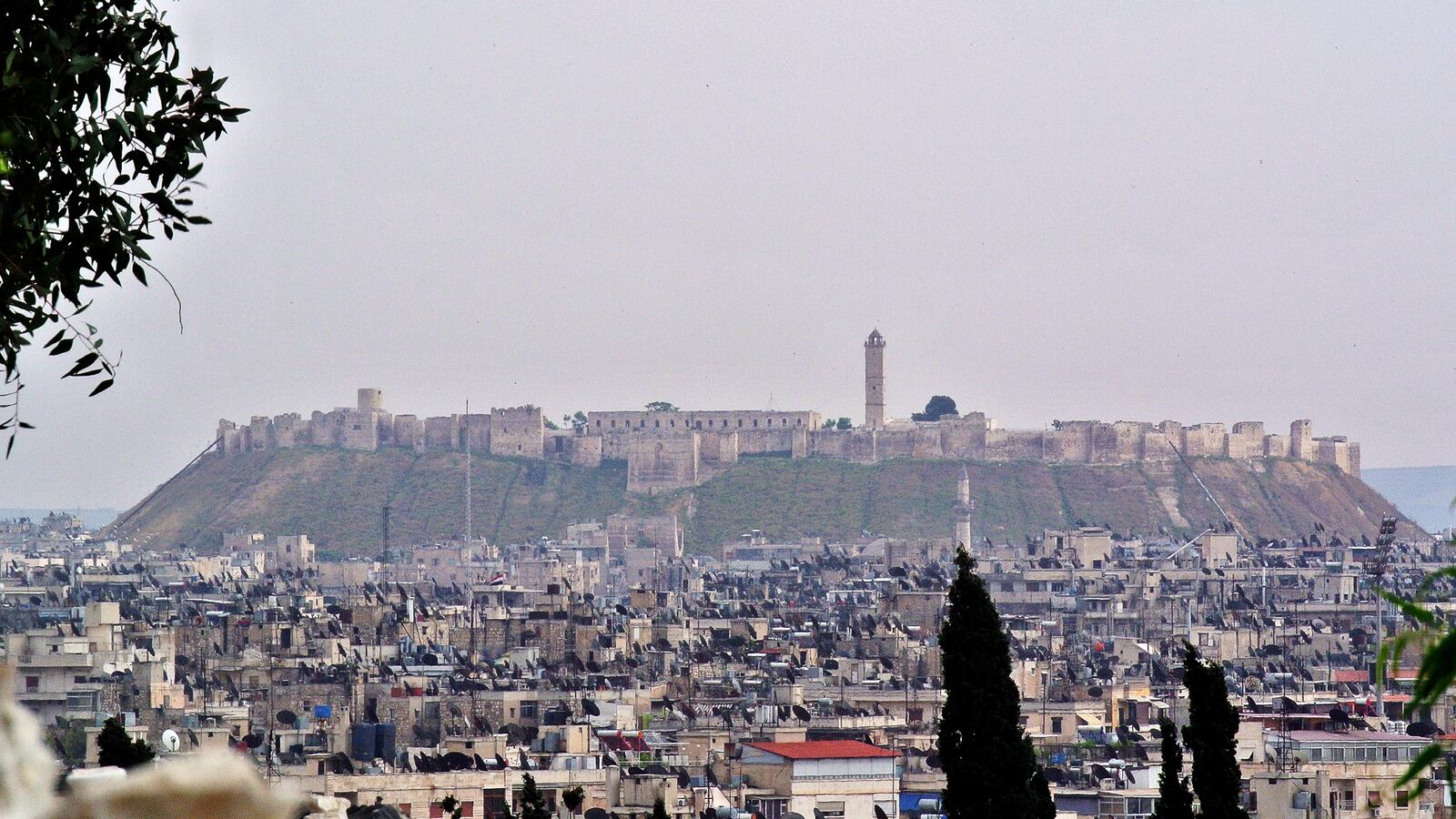It is hard to find new ways of saying it.

Just a few days after the fall of Al-Qusayr to the Syrian regular army, reinforced by thousands of Hezbollah militants, Bashar al-Assad, the Syrian killer, declared his intention to mount an assault on Aleppo, the country’s second-largest city and its economic heart. With the Party of God having already deployed 2,000 of its most seasoned fighters around the city (according to reports in the English-language press confirming statements by party leaders), a spokesman for the Syrian security services announced from Damascus that “it is likely that the battle for Aleppo will begin within a few hours or days.”
In response, the international community, gathered in Ireland for another G8 summit, has not moved a muscle, preferring to persist in its familiar role-playing game: Putin vs. Obama, with Putin laying down the law to Obama, puffing out his chest on television and claiming, with no one daring openly to contradict him, that there can be no question of supplying surface-to-air missiles to the rebel forces, forces that he would prefer to see delivered up, bound hand and foot, to the regime’s heavily armed rabble. I will not dwell on what the “battle for Aleppo” means in Assad’s terminology, since it does not seem to shock many people anymore.
I will not dwell on the fact that when, again in Assad’s parlance, reference is made to “retaking” a city, that means punishing it, which in turn means destroying it, killing tens of thousands of people, and reducing whole neighborhoods to rubble. Nor will I dwell, because no one seems to care much, on the heroism of those men and women who, a year ago, after unheard of sacrifices and without any sort of outside support, freed themselves from the regime’s grip and converted their city—until the recent surge of the first Salafist battalions through the breach opened by the West’s indifference—into one of the centers of the Syrian revolution, the living symbol of the victory of democracy over the twin monsters of dictatorship and radical Islam—in short, a city doubly symbolic and perhaps, for that reason, doubly heinous in the eyes of the great urbicidal party without borders.
This much, lamentably, is familiar ground. One wonders, however, whether the leaders of the West are aware that Aleppo is one of the most ancient and glorious of the world’s cities?
Do they know that it was there, no less than in Athens, Babylon, Susa, or Persepolis, that the very idea of the city, and of a civilization based on cities, was invented?
Do they know that this city of the world, the city of the Hittites and of Alexander the Great, of the Romans and the caliphs, of the Umayyads and Fatimids, of Saladin and the Mongols—do they know that in this city, which during the Middle Ages was the terminus of the Silk Road, languages, religions, arts, and cultures of every strain have crossed paths over the centuries, that here, from time immemorial, Arabs, Turks, Kurds, Jews, Venetians, Armenians, Maronites, orthodox Greeks, and Christians (Syriac, Nestorian, and Coptic) have lived side by side?
If they do not care about the cost in lives, if the spectacle of Syrian civilians being torn apart by rockets does not stir them, if they have been able to accept without blinking the crossing of the famous “red line” they themselves drew around the use of chemical weapons, will they also stand by as the city’s souks with their thousands of stalls, the bazaars with doors of carved wood, the leather and spice markets, the priceless monuments, the citadel celebrated by countless chroniclers and poets, all of which constitute a pulsing part of humanity’s living heritage, is reduced to nothing?
The surrender of Aleppo to the death squads of Hezbollah would be a fresh eruption of carnage whose victims would be heaped atop the hundred thousand already claimed by this atrocious war against a civilian population.
It would mark a shift in the array of forces that would permanently tilt the advantage in favor of Assad, whom nothing and no one could then stop from sounding the death knell of both the Syrian insurrection and the Arab spring.
Like the bombardment of Dubrovnik two decades ago, like the torching of the library of Sarajevo by Mladic’s arsonists, like the Buddhas of Bamiyan shattered by the bullets of the Afghan Taliban, like the sacred manuscripts of Timbuktu cast into the fire of iconoclasm by Malian fundamentalists, the surrender of Aleppo would be a crime against the human spirit, a disaster for civilization, an entire lobe of our collective memory lost in smoke and ash.
Aleppo belongs not to Syria but to the world.
And, just as those past crimes haunt our collective conscience, the destruction of Aleppo would constitute a new offense against the international community, a spitting in the face of the world—that is, in the face of each one of us.
Precious little time remains to save Aleppo.
Will we have the courage to draw a new red line and, this time, to enforce it? Or will we once again, weeping with remorse, give free rein to the assassins of body and spirit?
Translated by Steven B. Kennedy






